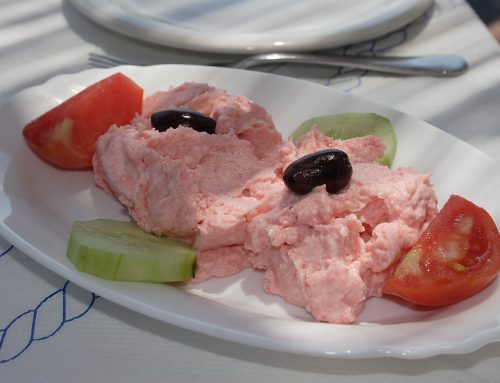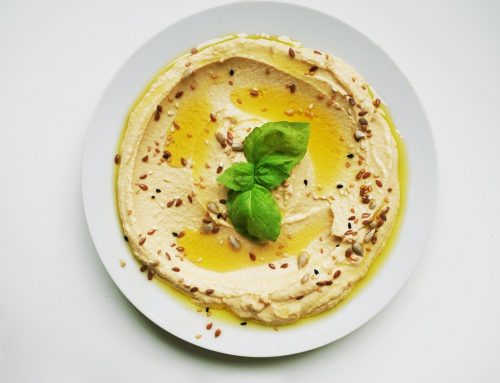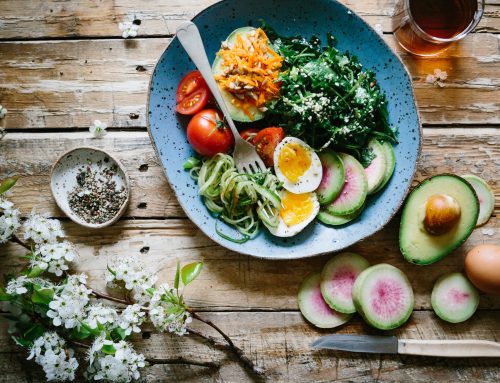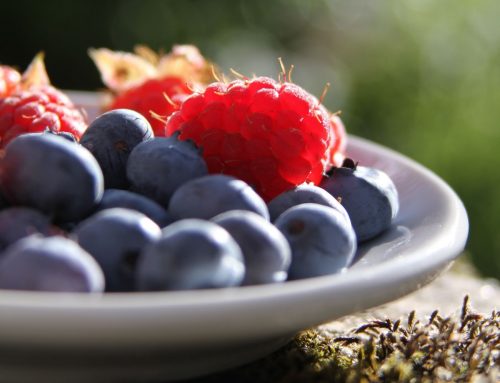It’s officially spring (despite what my weather app tells me) which means that obviously I’m thinking ahead to summer. Summer vacations, barbecues, picnics, cocktails, the whole nine yards. And honestly, nothing sums up summer quite like watermelon. Sadly, watermelons (which, surprise, are technically berries!), have gotten a bad rap as of late with keto-devotees and others because of how sweet they are. They have to have tons of sugar in them, right? Wrong. Watermelons are actually relatively low in sugar compared to other fruits. A one-cup serving of diced watermelon has nine grams of sugar. That’s less than what you’d get from a cup of mango (23 grams), banana (18 grams), or even apples (11 grams). So let’s just nip that false rumor in the bud right now. And with that nine grams of sugar, you’re also getting a helluva lot of nutrition, too, from antioxidants to fiber and potassium. So if you ever need receipts for someone hating on your go-to summer treat, just show them this list of all of the health benefits of watermelon. Anyone else feeling vindicated?
What are the health benefits of watermelon?
1. Watermelon is high in cancer-fighting lycopene: Watermelon can credit its gorgeous pink-red hue to the antioxidant lycopene. “Lycopene is an antioxidant and anti-cancer nutrient that can be consume raw and is bioavailable (useable by the body),” says Isabel Smith, MS, RD, CDN, the founder of Isabel Smith Nutrition. Of course, watermelon alone won’t safeguard your health, but the nutrient can play a helpful role as part of an overall healthy diet.
2. Watermelon is also high in vitamin C: Don’t count oranges and strawberries as the only fruits in your vitamin C arsenal. Watermelon is a good source of the vitamin, says Smith—per the USDA, one watermelon wedge has about 23 mg of vitamin C, which is about 30 percent of your recommended daily intake. Smith says vitamin C plays a key role in helping your body form collagen, the protein that keeps skin healthy and eyesight sharp.
3. It’s a great pre-workout snack: “I like it because it’s a source of hydration and it’s lower in fiber, so it won’t make your tummy ache before exercise,” says Smith. Plus, it is a decent source of potassium (crucial for muscle function); just one watermelon wedge has 320 mg of potassium, about 12 percent of your daily requirements. The fruit also packs an amino acid called L-citrulline – some research suggests that, overtime, regular consumption may boost levels of nitric oxide in the blood to improve exercise performance.
4. Watermelon helps with post-workout recovery, too: Carbs are getting a lot of hate these days, but after a workout, your muscles need to replenish their glycogen stores as part of proper recovery. “Watermelon has useable carbs, plus magnesium and the amino acid L-citrulline, which is involved in healing and exercise recovery,” says Smith.
5. It could be good for your heart: It’s all thanks to lycopene – research shows that the phytonutrient can help keep arteries flexible, stymies the accumulation of artery-clogging plaque, and may even help reduce blood pressure. Considering heart disease is the number one killer of women, it’s always good to load up on heart-healthy foods.
6. It’s hydrating: It’s called watermelon for a reason. While refilling your S’well bottle is undeniably a good thing, what you eat also counts toward your hydration quota for the day, says Smith. (In fact, food makes up about 20 percent of your water intake.) Considering watermelon is drip-down-your-chin juicy, it should come as no surprise that it’s a great way to “drink” up in addition to your other healthy hydration habits.
7. It’s a great healthy dessert (if that’s your thing): Remember: Watermelon is relatively low in sugar compared to other fruits. “Don’t get strung out about the sugar in watermelon,” Smith says. You can have two cups for about 90 calories and 20 grams of natural sugars which, says Smith, is a lot of watermelon. Even a one-cup serving (around nine to 10 grams of sugar, depending on how you slice it) is a generous amount of fruit, she says. (Small amounts of watermelon are even keto-friendly.)
The best way to eat watermelon
If you’re getting bored with just slicing and dicing your fresh watermelon (which, fair), here are a few other ideas of how to cook and eat watermelon to make the most out of its health benefits:
1. Make a cocktail: If you’re outside sipping a boozy bev anyway, why not make it spiked watermelon juice? A half ounce of vodka, some watermelon juice, and a few muddled fresh mint leaves is an instant refresher that gets the okay from Smith.
2. Turn it into salsa: Chop up watermelon and combine with lime juice, salt, and tomatoes for a nice salsa that can go with plantain chips or atop a grilled piece of fish or chicken. (If you’re really needing a recipe, this easy version from Gimme Some Oven looks divine.)
3. Or make it into a salad: Top a bed of arugula with watermelon cubes, feta, pumpkin seeds, and a light vinaigrette. Or try Crossfit exec Billy De La Rosa’s go-to salad recipe, which includes watermelon, avocado, nuts, tomato, and cucumber. Yummm.
4. Drink it: Yep, you can. There are a few bottled watermelon juices on the market, but WTRMLNWTR ($34.99 for a six pack) is made from just watermelon flesh and rind and lemon (as opposed to others that are “watermelon juice drinks” that have added sugar and fruit juices). You can also make your own easily by blending watermelon in a blender or food processor. If you want a smooth texture, strain before drinking.
5. Turn it into a popsicle: Because what screams “warm weather” quite like a popsicle (and a watermelon one at that)? These watermelon-hibiscus ice pops are just the ticket if you’re looking for a healthier treat.
Source: Well and Good





